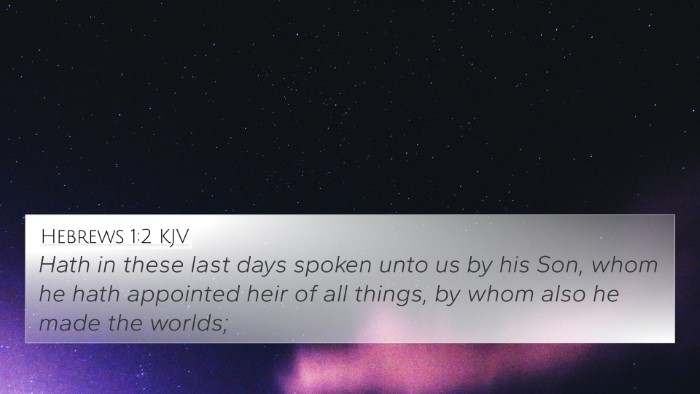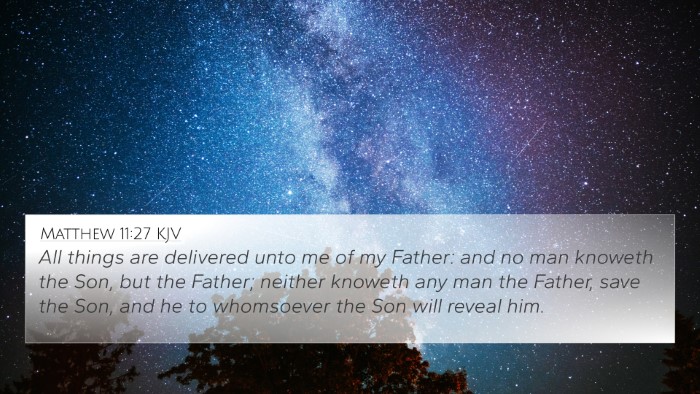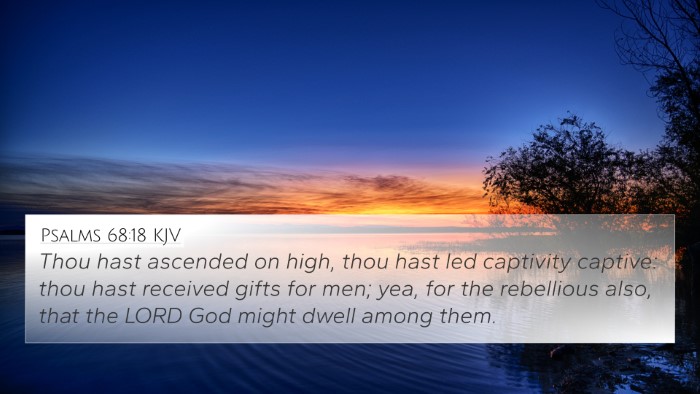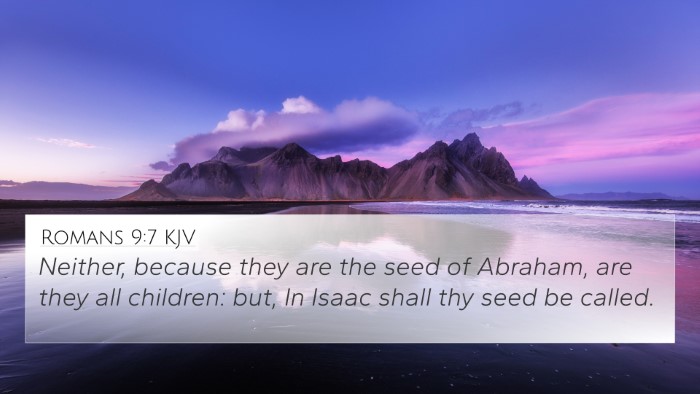Genesis 25:5 - Verse Meaning and Interpretation
Verse: Genesis 25:5
In this verse, we read: "And Abraham gave all that he had unto Isaac." This statement signifies the primacy of Isaac as Abraham's heir and the implications regarding God's covenant promises.
Insightful Commentary Summaries
Matthew Henry's Commentary
Matthew Henry emphasizes the significance of the inheritance bestowed upon Isaac. This act serves not only as a familial distribution of wealth but also as a divine reaffirmation of the covenant that God made with Abraham. Henry notes that Isaac embodies the fulfillment of God's promise, and this inheritance illustrates the concept of spiritual blessing surpassing material wealth.
Albert Barnes' Commentary
Albert Barnes further explores the implications of Abraham's decision to give all to Isaac. He elucidates that this was a deliberate choice, reinforcing Isaac's position not just as a biological heir but as the bearer of God's covenant. Barnes suggests that this decision indicates a clear demarcation of divine favor and responsibility bestowed upon Isaac, preparing him to lead the lineage chosen by God.
Adam Clarke's Commentary
Adam Clarke expands on the relational dynamics at play between Abraham, Isaac, and the surrounding familial context. Clarke indicates that while Abraham has other children, the unique relationship he has with Isaac lends a deeper understanding of the covenant's generational impact. He remarks on the idea that, even amidst potential claims from other descendants, God's purpose firmly rests with Isaac, signaling an enduring legacy.
Thematic Connections and Cross-References
This verse connects to several significant themes in the Bible, illustrating the continuity of God's plan through generations. Below, we outline several related Bible verses that provide additional context and insight:
- Genesis 12:2-3: God's initial promise to Abraham establishes the groundwork for Isaac's inheritance.
- Genesis 17:19: The specific mention of Isaac as the child of promise highlights his significance in the covenant.
- Genesis 21:12: God's command to Abraham about Isaac underscores the importance of Isaac in His divine plan.
- Romans 9:7-8: The New Testament reaffirms Isaac's role as the child of promise, linking physical lineage with spiritual inheritance.
- Hebrews 11:17-18: Reflects on Abraham’s faith and Isaac's role in God’s promise, discussing the act of offering Isaac.
- Galatians 4:28: Paul’s reference to Isaac's spiritual significance indicates the broader implications of the promise.
- Isaiah 41:8: Reminds us of Abraham's descendants, reinforcing the connection between faith and legacy.
- Hebrews 6:13-17: The unchanging nature of God's promise to Abraham points to the eternal significance of Isaac's inheritance.
- James 2:21: Describes Abraham's faithfulness, culminating in the divinely ordained inheritance of Isaac.
Conclusion: Understanding Genesis 25:5 in Context
This brief yet profound verse encapsulates the importance of inheritance, covenant, and faith within biblical theology. The decision of Abraham to give everything to Isaac signifies a continuation of God's plans through specific lineage, ultimately forming a foundation for future generations. This verse invites readers to explore not only the immediate implications of familial relationships but also the broader theological significance within the narrative of redemption that spans both the Old and New Testament.
Tools for Cross-Referencing
For those looking to delve deeper into connections between Bible verses, consider utilizing a Bible concordance or a cross-reference Bible study guide. These tools aid in identifying and understanding thematic relationships and linkages across scriptures, enriching one's study of the Bible.
Cross-Referencing Insights
When studying Genesis 25:5, connecting it contextually with its historical and theological background fleshes out a greater understanding of inter-Biblical dialogue. By examining parallels and thematic connections like those discussed, one can appreciate the unity and coherence of Scripture as it communicates God's will through generations.

















